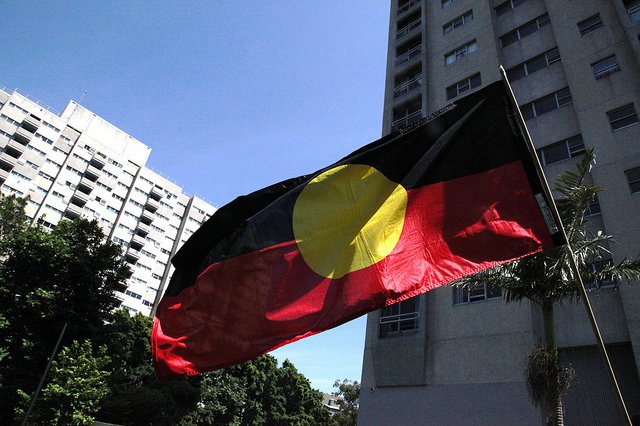“I always describe [living overseas] as the most liberating thing, because suddenly I was freed from the shackles of this history. When I met another person, it wasn’t meeting them, wondering what they really think, wondering what they think about Aboriginal people, I met them as a human being. To have that experience of living in the world as a human being first - not an Aboriginal person, just as a human being - was something I’ve never experienced before and whenever you come back to Australia, you lose that, because whenever you meet another person, that history sits very heavily on that relationship. There’s that gulf, that chasm, that we meet across that is often so difficult to be able to bridge.”
-Stan Grant
These are the impassioned words of indigenous journalist Stan Grant in an interview with the Reverend Bill Crews on 2GB radio late last year. Grant is on a quest to highlight racism in Australia. The video above is a speech given by Grant at The Ethics Centre, Sydney at the IQ2 Racism Debate (“Racism is destroying the Australian Dream”) and it had everybody watching and talking after it was uploaded a couple of days out from Australia Day this year.
After an acknowledgement of country, Grant began by reminding the audience of the recent chilling incident involving indigenous football player, former Australian of the Year, Adam Goodes.
“In the winter of 2015, Australia turned to face itself. It looked into it's soul and it had to ask this question. Who are we? What sort of country do we want to be?
This happened in a place that is most holy, most sacred to Australians. It happened in the sporting field, it happened on the football field… it was in the grandstands.
Thousands of voices rose to hound an Indigenous man. A man who was told he wasn't Australian. A man who was told he wasn't Australian of the Year. And they hounded that man into submission.”
He continued his argument in the affirmative, citing our nation’s history of Martial Law and legacy of frontier violence; of a people’s loss of land and a desecration of their culture; of the declaration of terra nullius - an empty land, there for the taking. He tore at heartstrings as he testified of his own family history of suffering. A great grandfather jailed for speaking in his indigenous language. A grandfather who fought for Australia (even though he wasn’t a citizen) who could not drink in the pub with his white mates. A grandmother turned away from hospital, because despite being white, she was giving birth to the child of her black husband. And how in 1963 when he was born, he, himself was counted among the flora and fauna.
It is this very recent history of racism in Australia, Grant anchors his argument that we need to be doing more. He cites statistics that highlight the disparity between indigenous and non-indigenous people in areas like infant mortality, incarceration and education. So, is he onto something?

In 2013, a United Nations rights expert, Mutuma Ruteere, emphasised how poverty is linked with racism and in turn, contributes to the continuation of racist attitudes which results in more poverty.
Ruteere noted that, 'as a result of historical and contemporary factors', indigenous peoples are part of a global underprivileged minority that will continue to face discrimination because of systems rooted in cultural structures and reinforced by industrial development. This history of discrimination has left a huge number of racial and ethnic groups across the globe trapped in conditions of 'chronic deprivation of resources' characterised by extremely limited choice with unprotected rights.
The UN report drew attention to the need for people to address discrimination in order to tackle poverty, and indeed this is applicable in Australia. “The complex relationship between racism and discrimination suggests that only the guarantee of equality and non-discrimination can redress that imbalance and protect such groups from falling into or being trapped in poverty.”
Listening to Grant’s speech in the racism debate in full is depressing and, quite frankly, a shameful exercise as Grant eyeballs the nation, saying, “The Australian Dream is rooted in racism.” It no doubt will leave Australians wondering, “But, now what?” and even, “It’s not my fault.”
While Grant used the speech to remind Australians of some progress, he emphasised that, “every time we are lured into the light, we are mugged by the darkness of this country's history. Of course racism is killing the Australian Dream. It is self evident that it's killing the Australian dream. But we are better than that.”
Grant’s speech could have been called “Australians, All Let Us Reflect.” And it is with that sentiment, that it is worth reflecting on our attitudes towards our nations First Peoples. In 2014, Beyond Blue published the findings of a survey of the attitudes of over 1,000 non-Indigenous Australians:
Many more people say that, while they wouldn’t do these things, they do not see them as discriminatory.
Stan Grant has given Australians a lot to reflect on this Australia Day, and in closing, it is worth repeating his opening remarks:
“Australia turned to face itself. It looked into it's soul and it had to ask this question. Who are we? What sort of country do we want to be?”